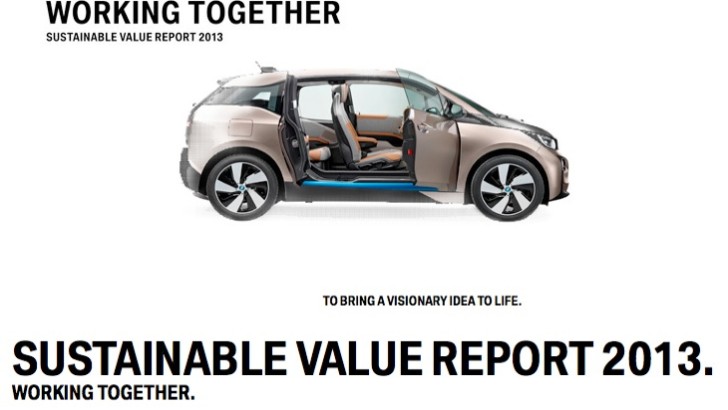Apparently BMW is extremely serious with its eco approach towards everything related to the auto industry and their efforts are really paying off. The Group just launched its sustainability report for 2013 and the numbers are impressive.
The highlights of the latest report show drastic improvements over the past years and the future plans of the company. For example, the CO2 emissions of the vehicle fleet were reduced by 37 percent compared to 1995, to 133 grams / km. Furthermore, the share of renewable electricity in total electricity supply of the BMW Group has risen to 48 percent.
That means almost half of the energy used by the company comes from renewable sources, more than any other manufacturer in the world. Most of this incredible result is due to the new i sub-brand that forced the automotive giant to rethink its strategy.
In order to make the i3 and i8 the eco-friendly vehicles they were promised to be, they set up a new factory in Moses Lake that makes CFRP using hydropower alone and they built a new section on the Leipzig plant, where the i3 is assembled, that uses only solar and wind power. All of these contributed to the good results we see today.
However, that’s just for now. The future holds even bigger targets to achieve. BMW wants to make more amends and promised to reduce resource consumption during production by 45 percent per vehicle by 2020, compared to 2006 levels.
On top of that, the EU legislation will force them to take the CO2 emissions even lower by 2021, the target being set at 95 grams / km, a 40% reduction compared to the average fleet numbers recorded in 2007 (158.7 g/km).
The CO2 emission regulations are only half of the problem, though. The EU also want fuel consumption to go down, on average, to approximately 4.1 l/100 km (57.3 mpg) for petrol cars and 3.6 l/100 km (65.3 mpg) for diesels per fleet by 2021.
In case manufacturers don’t manage to reach these targets by 2021, they will be penalized in the EU, having to pay an excess emissions premium for each car registered. This premium amounts to €95 ($129 at current exchange rates) for each gram over the limit per car.
Considering BMW wants to sell at least 2 million cars per year starting with 2014, the combined fines could bankrupt the company. You can check out the current Sustainability Report and see the progress yourself. Be warned, though, it's 231 pages long!
That means almost half of the energy used by the company comes from renewable sources, more than any other manufacturer in the world. Most of this incredible result is due to the new i sub-brand that forced the automotive giant to rethink its strategy.
In order to make the i3 and i8 the eco-friendly vehicles they were promised to be, they set up a new factory in Moses Lake that makes CFRP using hydropower alone and they built a new section on the Leipzig plant, where the i3 is assembled, that uses only solar and wind power. All of these contributed to the good results we see today.
However, that’s just for now. The future holds even bigger targets to achieve. BMW wants to make more amends and promised to reduce resource consumption during production by 45 percent per vehicle by 2020, compared to 2006 levels.
On top of that, the EU legislation will force them to take the CO2 emissions even lower by 2021, the target being set at 95 grams / km, a 40% reduction compared to the average fleet numbers recorded in 2007 (158.7 g/km).
The CO2 emission regulations are only half of the problem, though. The EU also want fuel consumption to go down, on average, to approximately 4.1 l/100 km (57.3 mpg) for petrol cars and 3.6 l/100 km (65.3 mpg) for diesels per fleet by 2021.
In case manufacturers don’t manage to reach these targets by 2021, they will be penalized in the EU, having to pay an excess emissions premium for each car registered. This premium amounts to €95 ($129 at current exchange rates) for each gram over the limit per car.
Considering BMW wants to sell at least 2 million cars per year starting with 2014, the combined fines could bankrupt the company. You can check out the current Sustainability Report and see the progress yourself. Be warned, though, it's 231 pages long!
